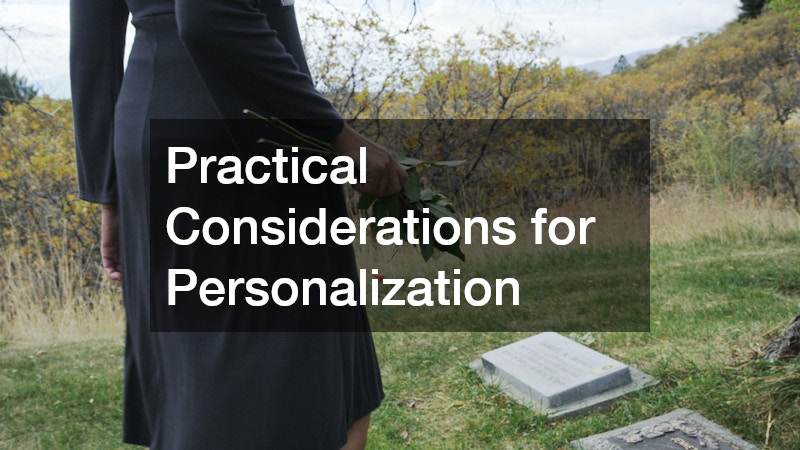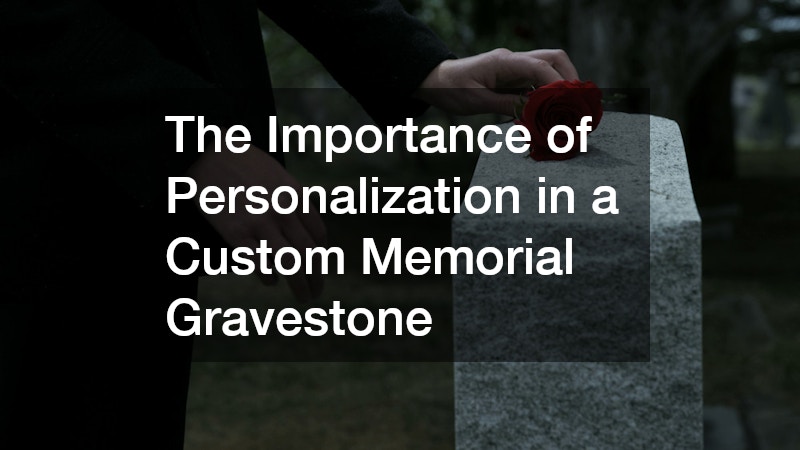
Losing a loved one is one of life’s most difficult experiences. Memorials provide a way to honor and remember those who have passed, offering a place for reflection, remembrance, and connection. While traditional gravestones serve this purpose, the rise of personalized options has transformed how families commemorate their loved ones. A custom memorial gravestone allows families to celebrate a life uniquely, capturing the personality, values, and stories that defined their loved one. Personalization ensures that a memorial is not just a marker of death but a lasting tribute to a life well-lived.
Why Personalization Matters
A personalized gravestone conveys much more than a name and dates; it tells a story. Each individual has a unique journey, and a gravestone that reflects personal interests, hobbies, or meaningful symbols can offer comfort to those left behind. Personalization also helps differentiate one memorial from another, giving the gravesite a distinct presence in a cemetery. Beyond aesthetics, the choice of materials, design elements, and inscriptions contributes to creating a space that resonates emotionally with family members.
In addition, personalization allows for cultural, religious, or family traditions to be incorporated into the design. For instance, certain symbols or phrases may hold deep significance for specific communities. Including these elements on a gravestone not only honors the individual but also preserves the heritage and values that shaped their life. Ultimately, a personalized memorial becomes a source of solace, helping families maintain a meaningful connection long after the loss.
Design Elements That Enhance Personalization
When creating a custom memorial gravestone, there are several design elements that can make the tribute truly unique. The choice of material is a primary consideration. Granite, marble, bronze, and even glass are commonly used, each offering different textures, colors, and durability. Families can select materials that reflect the personality or style of the deceased. For example, a polished black granite gravestone might convey elegance and formality, while a lighter stone with artistic engravings can feel more playful and reflective of a vibrant spirit.
Inscriptions play a crucial role in personalization as well. Beyond the basic information, families can include quotes, poems, or messages that capture the essence of the individual. Some choose to highlight achievements, hobbies, or cherished relationships, creating a narrative that visitors can read and connect with. Symbols, images, and motifs—such as religious icons, floral patterns, or representations of hobbies—further enhance the visual storytelling. These elements transform a gravestone into a reflection of the person’s life, allowing their memory to live on in a tangible and meaningful way.
Emotional Benefits for Loved Ones
A personalized gravestone offers more than aesthetic appeal; it provides emotional support. Visiting a memorial that feels uniquely tied to a loved one can be a source of comfort during difficult times. It allows family members to celebrate memories, reflect on shared experiences, and find solace in a physical representation of the person they lost. Personalization can also facilitate healing, as creating a tribute often involves shared family decisions, storytelling, and reflection on the individual’s life.
Moreover, a unique gravestone encourages ongoing connection. Generations of family and friends can visit the site, each finding aspects of the memorial that resonate with them. The personal touches embedded in the gravestone make it easier to recall stories, share memories, and teach younger family members about the deceased’s legacy. In this way, personalization strengthens emotional bonds and ensures that the memory of a loved one remains vivid and meaningful.
Practical Considerations for Personalization
While personalization is deeply meaningful, practical considerations should guide the process. Families need to consider the durability and maintenance of materials, the size and location of the gravestone, and cemetery regulations that may limit design options. Working with experienced memorial providers can help navigate these factors while still achieving a high level of personalization. Many professionals offer design consultations, allowing families to explore fonts, imagery, and layouts that best reflect their loved one’s life.
Budget is another practical aspect. Customization often comes with additional costs, depending on the complexity of the design and the materials chosen. However, the long-term value of a personalized memorial—both emotionally and symbolically—often outweighs the initial investment. Families can find creative solutions to achieve meaningful personalization without exceeding their budget, such as incorporating affordable engravings, selecting distinctive yet cost-effective materials, or focusing on a few key symbolic elements.A custom memorial gravestone is more than a marker of where a loved one rests; it is a celebration of life, individuality, and legacy. Personalization transforms a simple memorial into a unique tribute that captures the essence of the person it honors. Through carefully chosen materials, inscriptions, and symbols, families can create a meaningful and enduring connection that supports emotional healing and remembrance. By investing thought and care into personalization, a memorial becomes a lasting testament to the life, values, and stories of the person who has passed, offering comfort and inspiration for generations to come.





